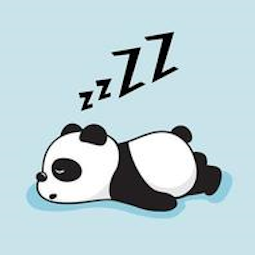I’ve seen this a hundred times now and it annoys me every time – there are still separate digits, they’re just attached to a central line. I can invent another way of writing 1-9999 with a “single symbol” too, here we go:
0001 0002 0003…0099 0100…9998 9999Right but that’s still disingenuous toward it, they manage to fit everything in a single glyph, which is of a standard size, and it is more information in a smaller space.
This number system chooses economy of paper over readability.
A good choice in a medieval monastery where parchment is precious and time is plentiful.
A bad choice in modern society.
Readability only seems poor because we’re not used to it. It’s actually pretty logical and well thought out. The real problem is that the system isn’t expandable, so once you get to 10000 you have to get creative.
That’s easy, just add a second gliph or more with a line connecting them.
I wonder how easy it is to perform arithmetic with these.
deleted by creator
Define glyph
A character
A glyph (/ɡlɪf/ GLIF) is any kind of purposeful mark. In typography, a glyph is "the specific shape, design, or representation of a character".
Courtesy of Wikipedia (emphasis mine)
You missed the point. One’s own may never have to leave the page. But should one?
Cistercian dick jokes: 9933
Don’t be a 9933!
And upside down is 3399.
Reversing certain patterns has interesting impact on the glyph.
Aaand TTD (time to dick (time until the inevitable happens, someone eventually draws a dick)) is some 1,5 hours.
What bugs me most is that because of their perfect symmetry, if you turn the paper around, the glyphs are still perfectly legible, just give you the wrong number.
I bet they scribbled these mostly on the walls of their cells in their Monastery. You’d have to hang upside down from your bunk to misread it.
In all seriousness, wait until you hear that they wrote these horizontally when combined with Latin script.
Is this loss?
6766?
Is this Tunic?
Not really more convenient tbh. Every large number is a cryptic puzzle you have to solve first.
Actually it seems pretty easy once you learn the patterns. I’m sure if you used it more frequently it would come quickly. For example, modifiers always occupy the same quadrant based on the power. What I mean is if the number is in the thousands, you look at the bottom left of the vertical line. Using this method you only have to look at each of the 4 quadrants of the symbol to know what the full number is. That’s not much different than writing out the four digits linearly in our current system.
I can see great advantages to this system back in the days when these symbols may be carved in stone, or before the printing press where everything was handwritten so ink and paper were very expensive.
That’s true of our numbering system. It’s literally am identical base system, you just need to learn the numerals.
abcd where a is the 1000s place, b is the 100s place, c is the 10s place and d the 1s. In both systems you can immediately interpret any part of the number by looking at that place in the number.
For example in the first example you can parse it easily in any order, the number is 1993, read from top left to bottom right it is literally 90+3+1000+900. Or you can simply read it from BL to TR and it reads 1000+900+90+3.
This system makes sense in the context of saving expensive paper/parchment (as was often extremely valuable, many books have been cleared and written over to save paper throughout history)
Look! I invented a much better version that everyone will understand immediately.
94 339343? 😜
…I honestly don’t know what to say. This is really, really cool. And intuitive enough. And boy, did they have a lot of time on their hands. 😆
There’s so many “iamverysmart” comments in here. Some people need to touch some grass.
Sure, one symbol, but how many lines per symbol. It seems much more efficient and easy to read writing it the common way.
This would be interesting for when you have to number something and have very limited space and don’t want the arabic numbers to be written too small.
I mean lets be honest, this technique is a couple hundred years old and was never adopted or even widespread. So ofc the method we use today is the superior one.
But this is very interesting and fun to play with. For everyone doing TTRPG or LARP this is a cool concept to integrate.
I was picturing a fleet of spaceships, with their identification number painted on like this. Maybe an ancient and abandoned fleet
Yeah for example that.
Also with that method you can write out super long serial numbers with only a few characters.
This is from the 13th century. So Arabic numbers were still very much growing in usage. So this would have been mainly as an alternative to Roman numerals.
To me this is better than a string of letters (the single symbol for 1993 for instance instead of MCMXCIII) but worse than Arabic numbering.
I was thinking about this one, and how it might be possible to get used to this system just as well. Neuroplasticity is so cool with how adaptable it makes us
It would be similar to writing each number out in quadrants, just with fewer lines for each digit.
7893 would become
9|3 7|81234 would become
3|4 1|2It might function similar to how we read words and sentences in chunks instead of word-by-word or letter-by-letter. I imagine we already do that with some numbers, which is why we chunk numbers as
120,000.05or555-555-1234Yeah. It’s like saying you can write this whole sentence in a single QR code.
This system is absolutely more efficient, using one space for 4 digits of arabic numerals, and ease of use has more to do with familiarity than anything else. You only think the “common way” is easy because it’s common to you. There are lots of number systems considered “the common way” to entire other cultures.
This is a base 10,000 system, it’s not one symbol, it’s one position. This system is only beneficial if you are crushed for physical space on a piece of paper, for today’s use case, it’s basically pointless.
It’s not really a base 1000 system. It’s base 10 attached to a line, with position denoting its power. It even has the benefit of being compound glyphs, with only
45 unique lines used (plus the spine). With a single addition this could be as expandable as Arabic.Not bad for a numbering system that didn’t become popularized. And if you say, “Ah, but you have to add a symbol,” feel free to learn the history of zero.
6 is 2 symbols though
the "′0"s in the percentage symbol “%” aren’t touching the “/”. is it one or 3 symbols?
Or the question mark, exclamation mark, etc.
Using the same argument, 10 is one symbol. It is the “ten” symbol.
I’m just pointing out that it makes no sense to say that this system allows writing any number as one symbol.
Yes.
It is either one or three symbols.
so 6 is one and two symbols then.
but when you search a tiny bit online you end up reading this
The percent sign % is the symbol used to indicate a percentage, a number or ratio as a fraction of 100.
confusing, there’s no right or wrong.
doing math with these sounds annoying
I like that a lot of numbers for each power of ten are made by overlapping the previous numbers with one or two. It makes me annoyed though that three is not made by overlapping one and two, because the system would still work. Aside from that it’s just a decimal system limited to four digits disguised as a single symbol.
Could be useful to write numbers not in base 10.
For non-tech people is like we write base 16 numbers (hexadeximal):
0, 1, 2, 3, 4, 5, 6, 7, 8, 9, A, B, C, D, E, FSo 26 would be 1A.
Edit: Does anyone know if these are available in unicode? I can’t find them, so I guess not.
Unicode has so many symbols, I’m a bit surprised these aren’t there.
I dig it. Seems it would be more logical to swap the 1000s and 100s so that each power of 10 is a single rotation (or translation of the small line if you view it that way). Between 10 / 100 there’s 2 rotations but between 1 / 10 and 100 / 1000 there’s only one
Cistercian number superiority tbh, gotta be one of my favourite notations.
I should say as well - it’s possible to do numbers higher than 9999 by writing the line horizontally and making it long, and I’ve heard it was done like that in rare cases but I will not provide sources.











